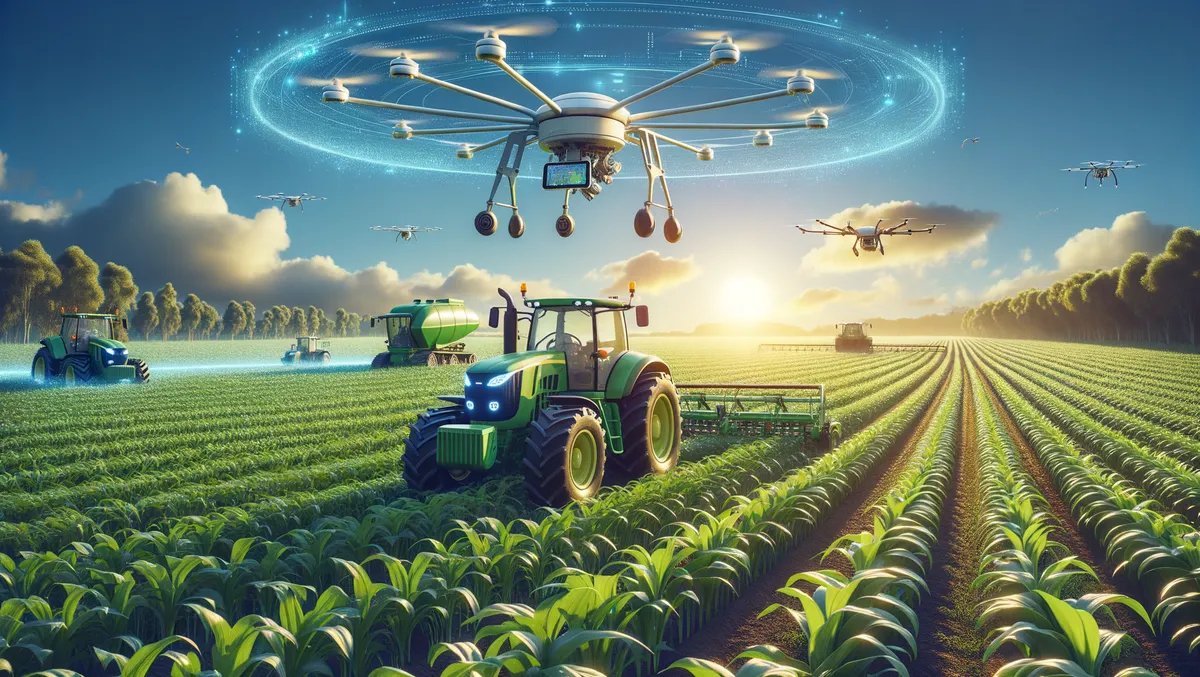
RSM Australia reveals optimistic outlook for agtech sector growth
A recently conducted research report by RSM Australia delivers a forward-looking perspective on the future of the 'agtech' sector, which is on the frontier of encouraging Australia's agribusiness growth.
The study, entitled "Breaking new ground: A report on the state and future of agtech in Australia," puts together findings drawn from a survey of technology industry leaders, including CEOs, CFOs, Directors, and Department Heads across a broad spectrum of verticals, including agtech, medtech, fintech, and cleantech.
The report collates and analyses critical insights into how these sector heads see their businesses evolving and tackle various critical issues such as business confidence, investment roadmaps, economic challenge navigation, and government support mechanisms.
Given its deeply transformative potential, agtech stands as a highlight: at the confluence of innovation, sustainability, and economic growth, it has the potential to shape Australia's agricultural practices and agribusiness panorama.
RSM's research reveals that the technology sector exudes strong business confidence despite prevalent uncertainties in the business ecosystem. As much as 70% of the respondents forecast higher revenue in the current financial year over the last. Furthermore, this buoyant sentiment was unanimous among agtech industry leaders who were confident about revenue growth in FY24 compared to FY23.
However, agtech leaders were not without concerns. The key challenges lie in the realm of staffing, echoing broader concerns across the technology industry about risks associated with cash flow and rising staffing costs. The agtech sector, in particular, expressed trepidation about the difficulties in attracting and retaining staff.
Diverging from the concerns of their industry peers, agtech leaders relegated cyber threats to the smallest risk to their business operations and revenue forecasts in 2023/24. This dismissal of digital threats represents a notable departure from the generally prioritised worry over looming cyber threats among technology industry leaders.
Ross Paterson, the National Leader of Agribusiness at RSM Australia, shared his insights into the changing face of farming practices. "The trend towards automation is one of the drivers transforming farming practices over the last 15 years. It started with tractors being wired up with GPS capabilities, and that led to auto-steering capabilities. With innovation, it's now become a driverless operation," Paterson remarked.
Paterson highlighted the emergence and growth of soil carbon projects, which allow farms to generate carbon credits to help offset some of their emissions. This could potentially create a separate revenue stream for farming businesses.
Paterson also underscored the future role of Artificial Intelligence in coordinating vital data such as climate forecasts, weather variations, and water availability that can impact the growing season, enabling farmers to make informed decisions that reduce production risk.
Discussing the biggest industry trends, Paterson said, "Some of the biggest trends reshaping the industry are control systems and automation, and links to big data and the cloud. This allows farmers to tailor their approach using insecticides, pesticides and the application of those as efficiently as possible for crop production."
Furthermore, Paterson made a clarion call for careful resource management, especially in the face of mounting challenges such as inflationary pressures, rising interest rates, increasing wages, competition for land use with carbon farming projects and renewable energy, and the growing threat of climate change. But amidst these constraints, there seems to be a persistent drive for innovative solutions and adopting new tools to combat these challenges.


